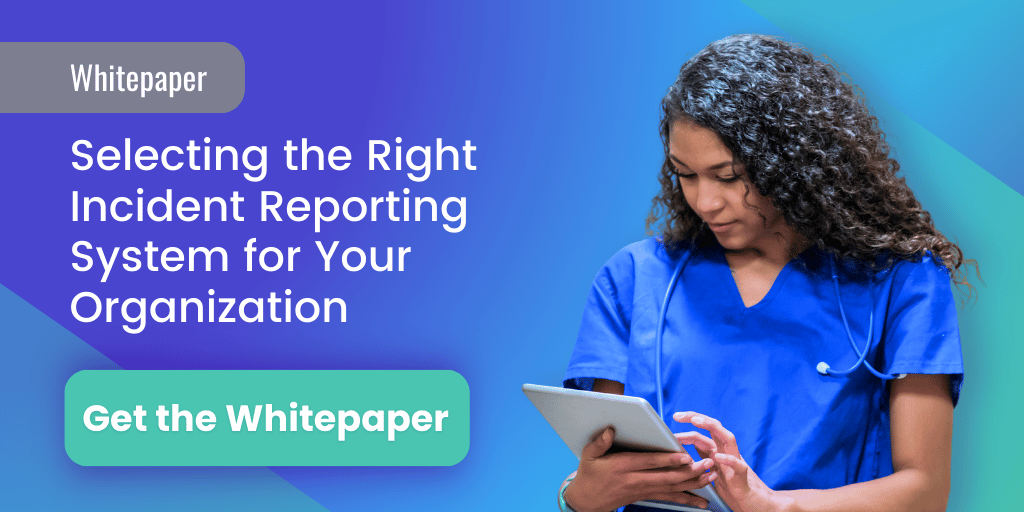3 min read
Medication Error Prevention for Healthcare Providers
Performance Health Partners
March 3, 2022

With the high cost and negative patient outcomes associated with medication errors, healthcare organizations can't afford not to implement strategies to prevent these errors. Read on to learn more about the causes of medication errors and what your organization can do to reduce them and improve patient safety.
What are Medication Errors?
A medication error is defined as “any preventable event that may cause or lead to inappropriate medication use or patient harm while the medication is in the control of the healthcare professional, patient, or consumer.”
Medication errors can include:
- Incorrect diagnosis
- Prescribing errors
- Dose miscalculations
- Poor drug distribution practices
- Failed communication
- Lack of patient education
Causes of Medication Errors
Understanding the most common risks of unsafe care can help organizations reduce medication errors, while improving patient safety.
Healthcare organizations commonly experience employee underreporting of safety incidents.
According to a study released by the US Department of Health and Human Services (HHS), roughly 86% of patient safety incidents occurring in healthcare organizations go unreported.
During in-depth interviews and focus groups with physicians, pharmacists, and nurses from four community hospitals, investigators compiled a list of the most cited barriers to medication error reporting:
- Extra time required in reporting
- Cumbersome report forms
- Hesitancy about “telling on” someone
- Perceived severity of the error
Medication Error Prevention for Healthcare Providers – A Story from a Nurse
Right out of school, I began my nursing career in the emergency department (ED). After working for five years in the ED, I transferred to the ICU. It was during my orientation of the ICU that I realized the differences between the two areas. The ICU consisted of routine administering of morning medications, providing breakfast, and visiting hours, etc.
At the time, the hospital was not yet operating on a system for electronic medical records (EMR). One morning during routine medication administration, one of the drugs was not in the patient’s bin. I contacted the pharmacy for the medication that morning. About an hour later, I still hadn’t received the medication. Therefore, I contacted the pharmacy again and stated that I would pick it up, which I did. After I received the medication, I returned to the patient’s room and administered the drug.
During noon vitals, the patient’s blood pressure was low, around 90/50. The patient was not experiencing any visible symptoms. His skin was warm and dry, and he was sitting in a chair, conversing with his family and me.
The medication I picked up from pharmacy was for blood pressure and the patient had had open heart surgery the day before. It’s not unusual for the surgeons to keep patients’ blood pressure low after surgery. This relieves strain on the heart and allows it to rest.
I rechecked the patient’s blood pressure during that time, and again 30 minutes later. It remained low. So, I contacted the physician, who advised me to keep a close eye on the patient. The patient remained stable, and his BP remained unchanged, so the patient was transferred to the telemetry unit without any other concerns.
I finished out my shift for the day and went home. It wasn’t until that night, or should I say early morning, when I woke from a dead sleep and realized why the patient’s blood pressure was so low.
When I went to the pharmacy, I picked up two pills of the same medication and same strength. What I hadn’t realized was that the pharmacy mistakenly dispensed two doses, and I had given the patient both of them that morning.
Had the facility been utilizing an EMR system at that time, this may not have happened. If I had brought the medication administration record into the patient’s room and double checked prior to administering the medication, I may have caught that I had two doses and not just one. This medication error was never reported.
Improve Reporting, Reduce Medication Errors
There are three recommendations to help with underreporting:
- Simplify the incident reporting process by making the process user-friendly and easy to complete.
- Improve the channels of communication between senior management and frontline staff, as many participants get frustrated when they do not receive feedback from the administration.
- Increase awareness and education to help frontline staff better understand the process of incident reporting (how to report an incident, why to report an incident, and how incident reporting data is being used).
When searching for an incident reporting solution to avoid medication errors (and other incidents), make sure to look for an incident tracking system and software provider that provides the following:
- User-friendly interface and functionality
- Takes less than two minutes to report an incident
- Provides follow-up management tools including a root cause analysis
- Dashboards to share among teams, if needed
- Diverse education to all team members (videos, how-tos, access to their team, etc.)
Reduce Medication Errors with Performance Health Partner’s Software
With the high cost and negative patient outcomes associated with medication errors, the importance of prevention is clear.
With Performance Health Partner’s Incident Reporting System, healthcare organizations can access the data they need to mend fragmented care delivery systems, while improving overall patient safety.


